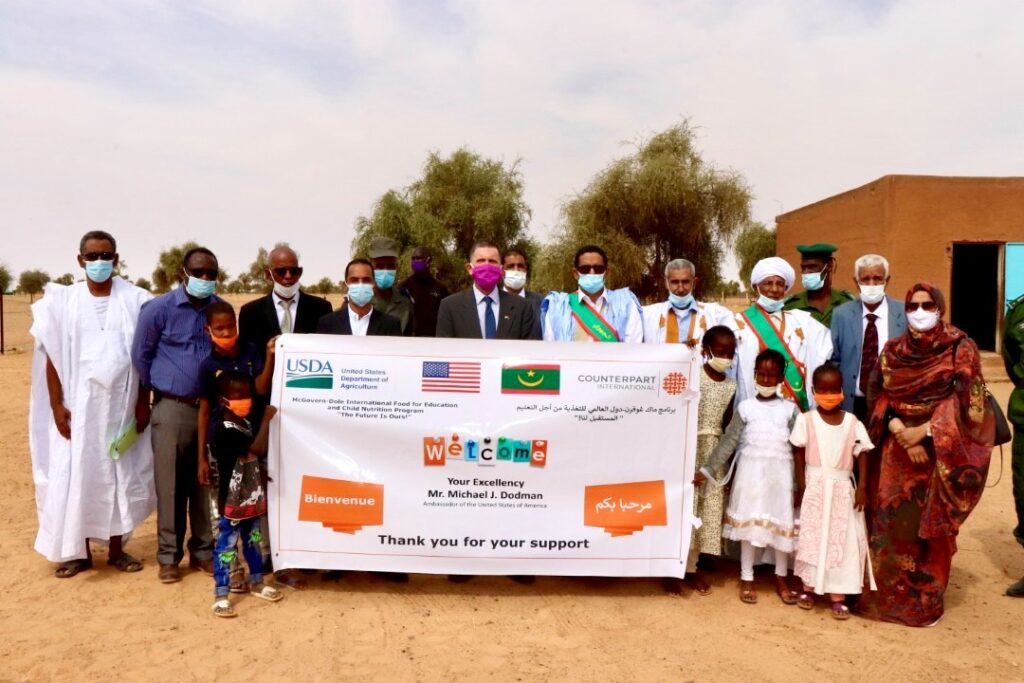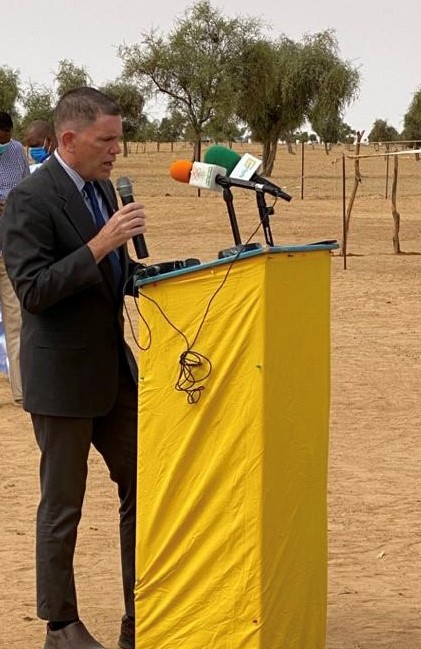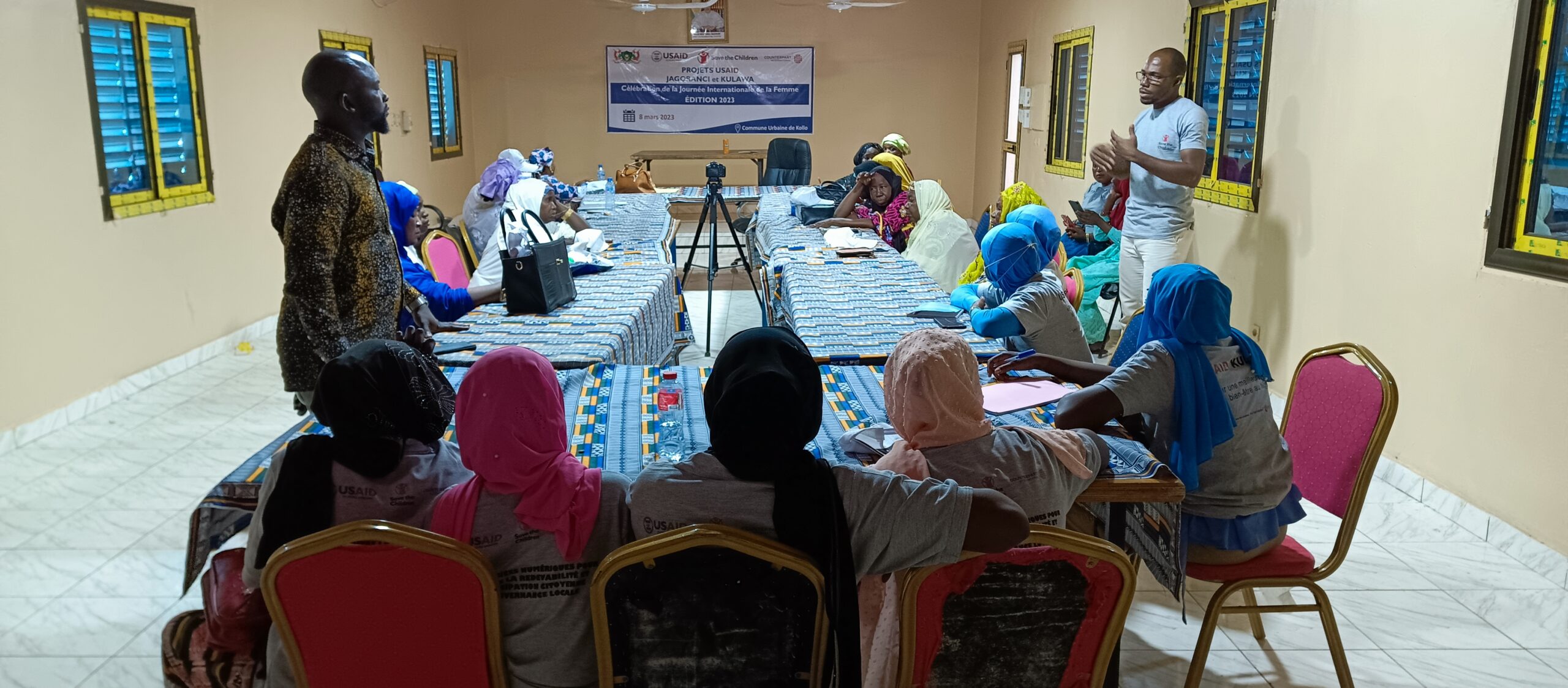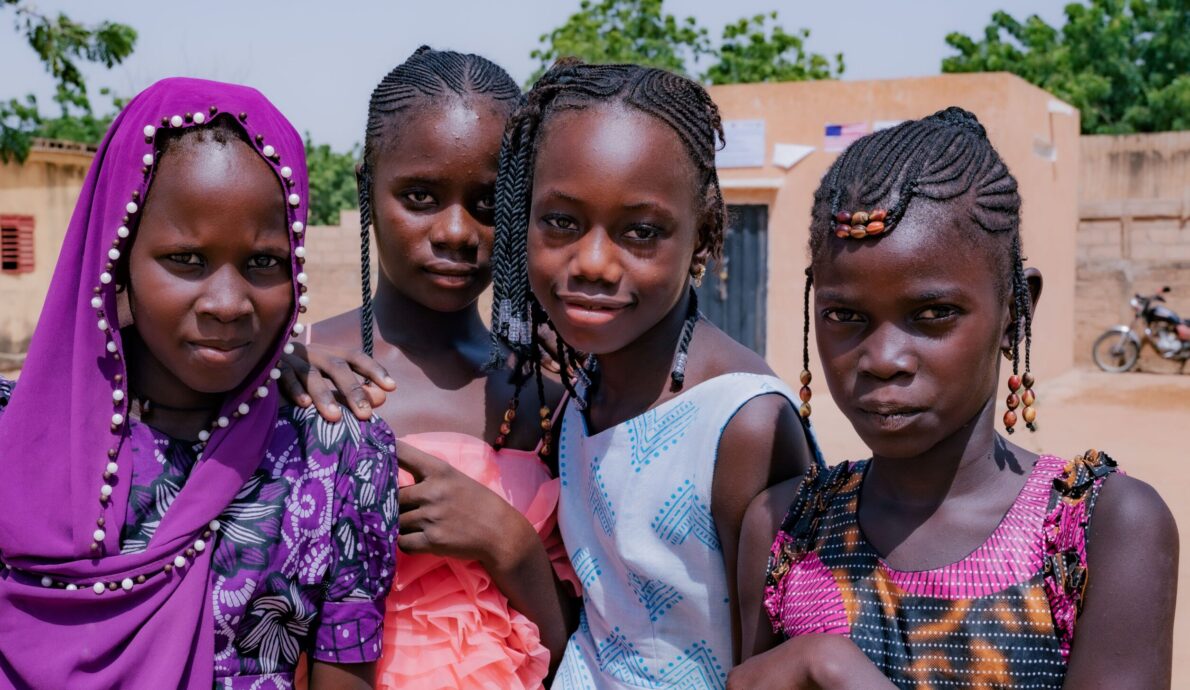On November 30, 2020, U.S. Ambassador Michael J. Dodman visited Baghdade school in Brakna Region, Mauritania. This school is among 209 primary schools benefiting from the McGovern-Dole International Food for Education and Child Nutrition program, “The Future is Ours!”, which is funded by the United States Department of Agriculture (USDA) and implemented by Counterpart International. Over the course of five years, the school meals project will feed 127,000 children, 2,000 pregnant and lactating women, and 627 cooks using U.S. donated agricultural commodities.

Among the attendees were the Brakna governor’s advisor, Mr. Mrabih Rabou Ould Abidine; the president of the regional council, Mr. Mustapha Ould Mahmoud; the mayor of Aghchourguit commune, Mr. Elhadj Ahmed Ould Keboud; the regional director of education, Mr. Sidi Mohamed Ould Hademine; the Director of Nutrition and Health Education (DNHE) at the Ministry of National Education, Training and Reform, Mr. Sidaty Ould Hameine; the chief of the village; Counterpart International staff; and school personnel.
While reflecting on the progress Mauritania has made, Ambassador Dodman remarked, “I would like to congratulate the Government of Mauritania for valuing school canteens by granting this year, through its national budget, more than 40 million MRU for canteen operations in the country. I congratulate you and encourage you. The opening of the 2020/2021 school year on November 16 in the presence of His Excellency the President of Mauritania at Mbout school, a beneficiary of the McGovern-Dole project, attests to his commitment to the education of young children.”

In addition to providing school meals, Counterpart and its partners will also build infrastructure such as wells and latrines; provide treatment for deworming; train teachers, school administrators, and government officials; and produce books and supply other reading materials to increase literacy. During the visit, all the attendees expressed their appreciation of USDA, including Mr. Sidaty. He remarked, “We believe that malnutrition is the main reason that students drop out of school and perform poorly. Therefore, we give a high priority to school canteen programs.”
Expressing his support for the project, the mayor of Aghchourguit commune stated, “We believe that this program will have a positive impact on the students’ health and their learning capacity, as the program is not only limited to school canteens but it has many educational activities to improve students’ reading levels in Arabic and French and encourage them to read and be more creative.”
The Ambassador visited the commodities storeroom built by Counterpart and enjoyed a school meal of rice and lentils with the students. He also participated in a meeting with Parent Teacher Association members, who shared their support for the project and discussed challenges such as the poor conditions of the classrooms and the lack of access to water.
He also visited the main project warehouse in Aleg, capital of Brakna Region, and expressed his appreciation to the Commissariat à la Securité Alimentaire (Food Security Council) that generously provided this warehouse and two others as a contribution from the Government of Mauritania to the project.
At the end of the visit, Ambassador Dodman, along with the president of the regional council, the governor’s advisor, the regional director of education, and the DNHE, each planted a moringa tree. The moringa tree is known for its resilience and ability to survive and thrive in harsh conditions, including extreme heat and limited water. It is a significant tree due to its many nutritional properties. All parts of the moringa tree – bark, pods, leaves, nuts, seeds, tubers, roots, and flowers – are edible.
It is Counterpart’s hope that The Future is Ours!, like the moringa tree, will support the resilience of Mauritania people for years to come.











